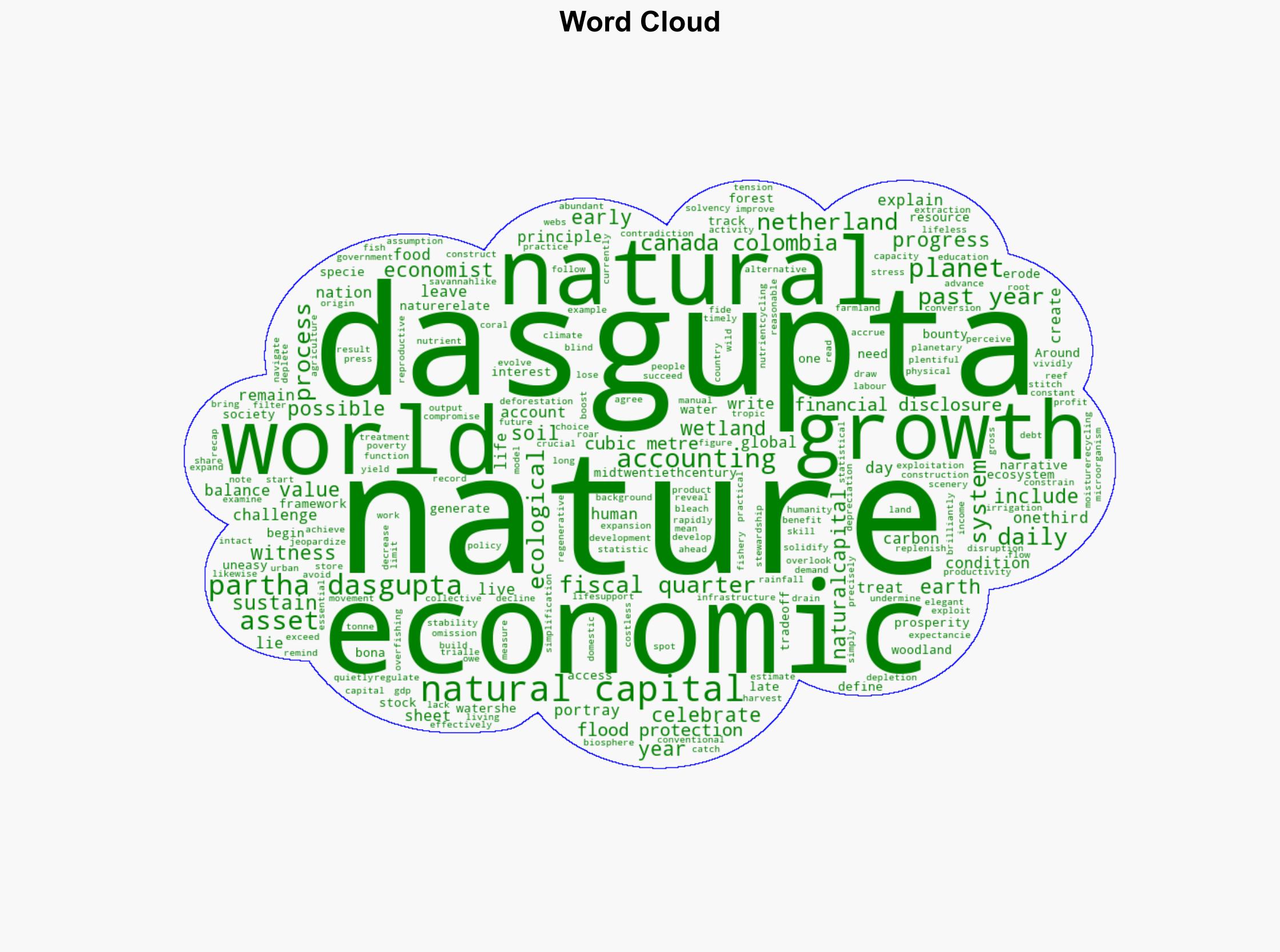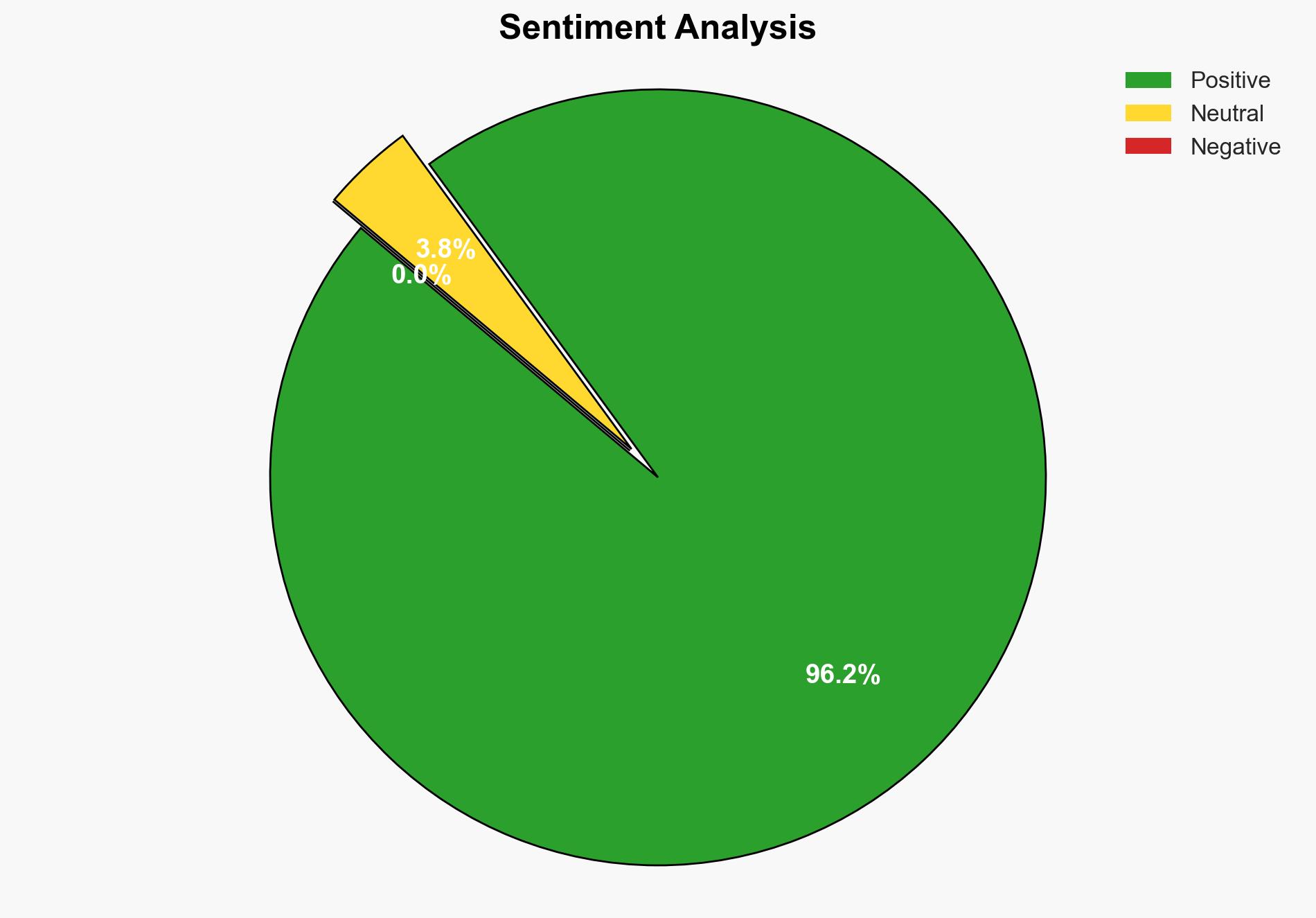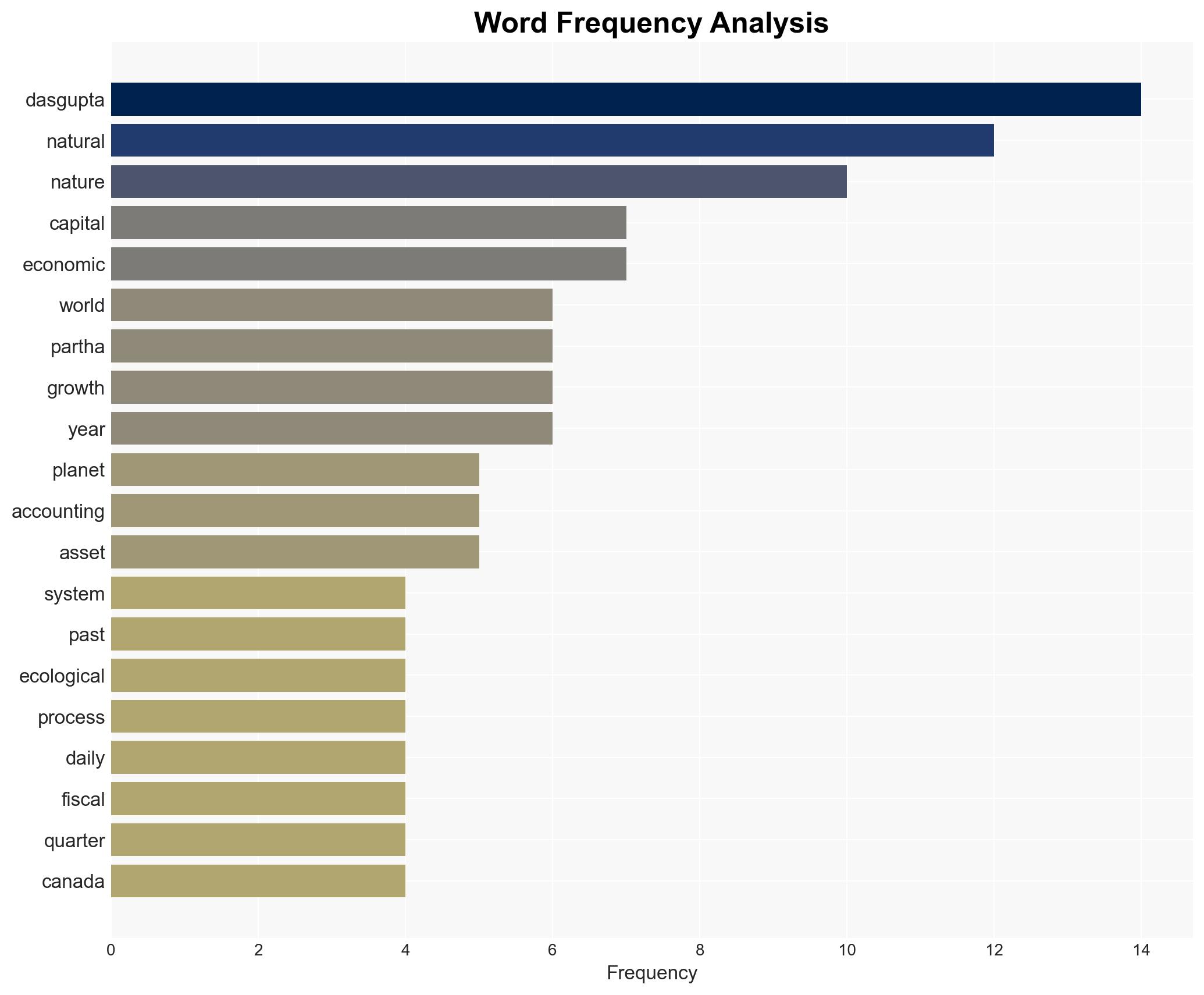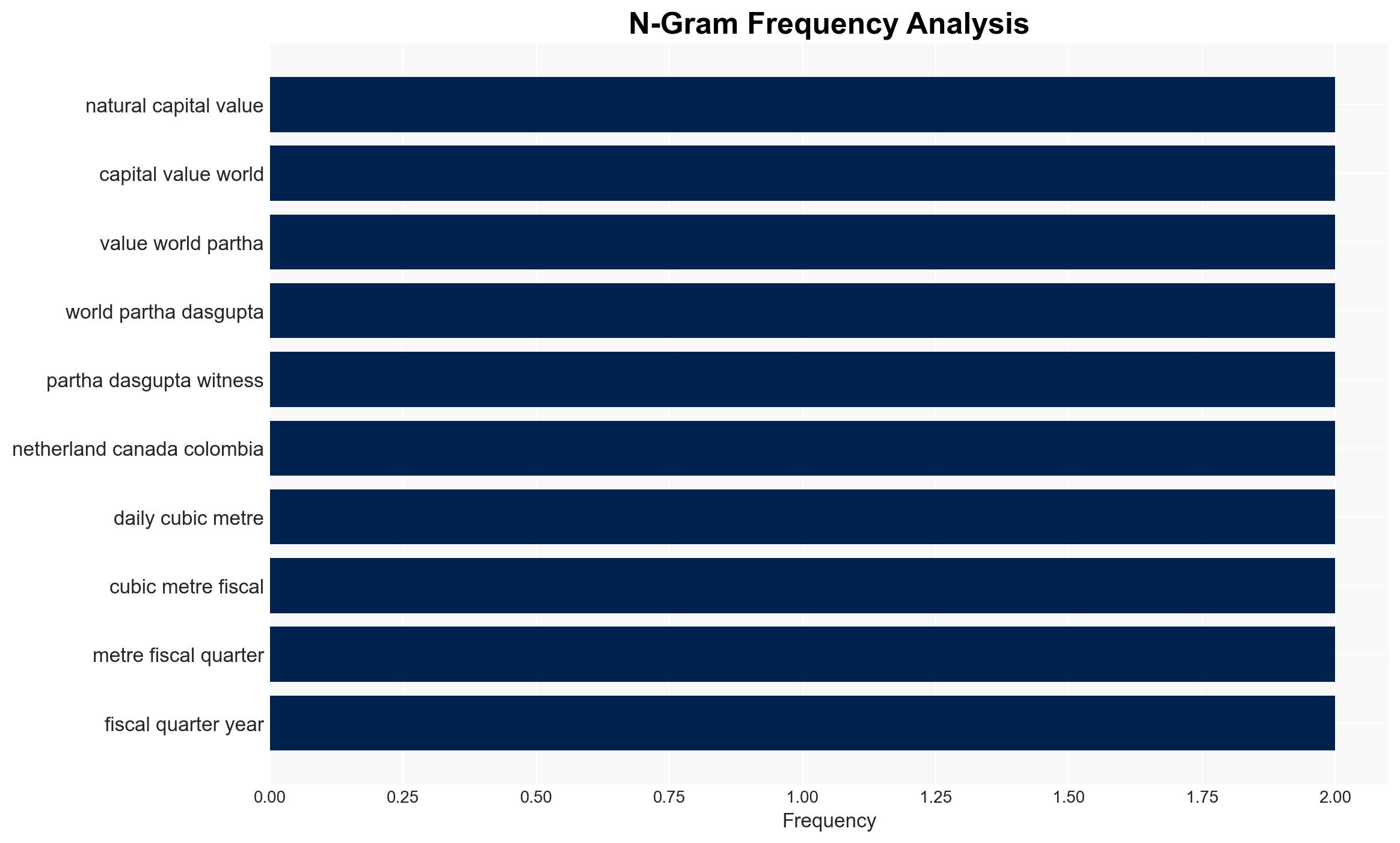Why the global economic system should value life on our planet not exploit it
Published on: 2025-11-24
AI-powered OSINT brief from verified open sources. Automated NLP signal extraction with human verification. See our Methodology and Why WorldWideWatchers.
Intelligence Report:
1. BLUF (Bottom Line Up Front)
The global economic system’s current focus on exploiting natural capital rather than valuing it poses significant long-term risks to ecological and economic stability. The most supported hypothesis suggests that integrating natural capital accounting into economic systems can mitigate these risks. Confidence Level: Moderate. Recommended action includes promoting and implementing natural capital accounting frameworks globally.
2. Competing Hypotheses
Hypothesis 1: The global economic system will continue to prioritize short-term economic growth over the sustainable management of natural resources, leading to further ecological degradation and long-term economic instability.
Hypothesis 2: There will be a shift towards integrating natural capital accounting into economic systems, driven by increasing awareness and policy initiatives, leading to more sustainable economic practices.
Hypothesis 2 is more likely due to growing international recognition of ecological limits and the emergence of policy frameworks in countries like the Netherlands, Canada, and Colombia.
3. Key Assumptions and Red Flags
Assumptions: It is assumed that economic models can be adapted to include natural capital without significant resistance from entrenched interests. It is also assumed that the data required for natural capital accounting is available and reliable.
Red Flags: Potential resistance from industries that benefit from the current system, lack of political will, and insufficient international cooperation could hinder progress.
4. Implications and Strategic Risks
Failure to integrate natural capital accounting could exacerbate ecological degradation, leading to resource scarcity, increased geopolitical tensions over resources, and economic instability. Conversely, successful integration could enhance sustainability, reduce ecological debt, and promote long-term economic resilience.
5. Recommendations and Outlook
- Actionable Steps: Encourage international collaboration to standardize natural capital accounting frameworks. Support research and data collection initiatives to improve the reliability of ecological data.
- Best Scenario: Widespread adoption of natural capital accounting leads to sustainable economic growth and reduced ecological degradation.
- Worst Scenario: Continued exploitation of natural resources results in severe ecological and economic crises.
- Most-Likely Scenario: Gradual integration of natural capital accounting with mixed success across different regions, leading to incremental improvements in sustainability.
6. Key Individuals and Entities
Partha Dasgupta (Economist) – Advocate for integrating natural capital into economic systems.
7. Thematic Tags
Cybersecurity, Environmental Sustainability, Economic Policy, Natural Capital Accounting, Global Cooperation
Structured Analytic Techniques Applied
- Adversarial Threat Simulation: Model and simulate actions of cyber adversaries to anticipate vulnerabilities and improve resilience.
- Indicators Development: Detect and monitor behavioral or technical anomalies across systems for early threat detection.
- Bayesian Scenario Modeling: Quantify uncertainty and predict cyberattack pathways using probabilistic inference.
Explore more:
Cybersecurity Briefs ·
Daily Summary ·
Support us





